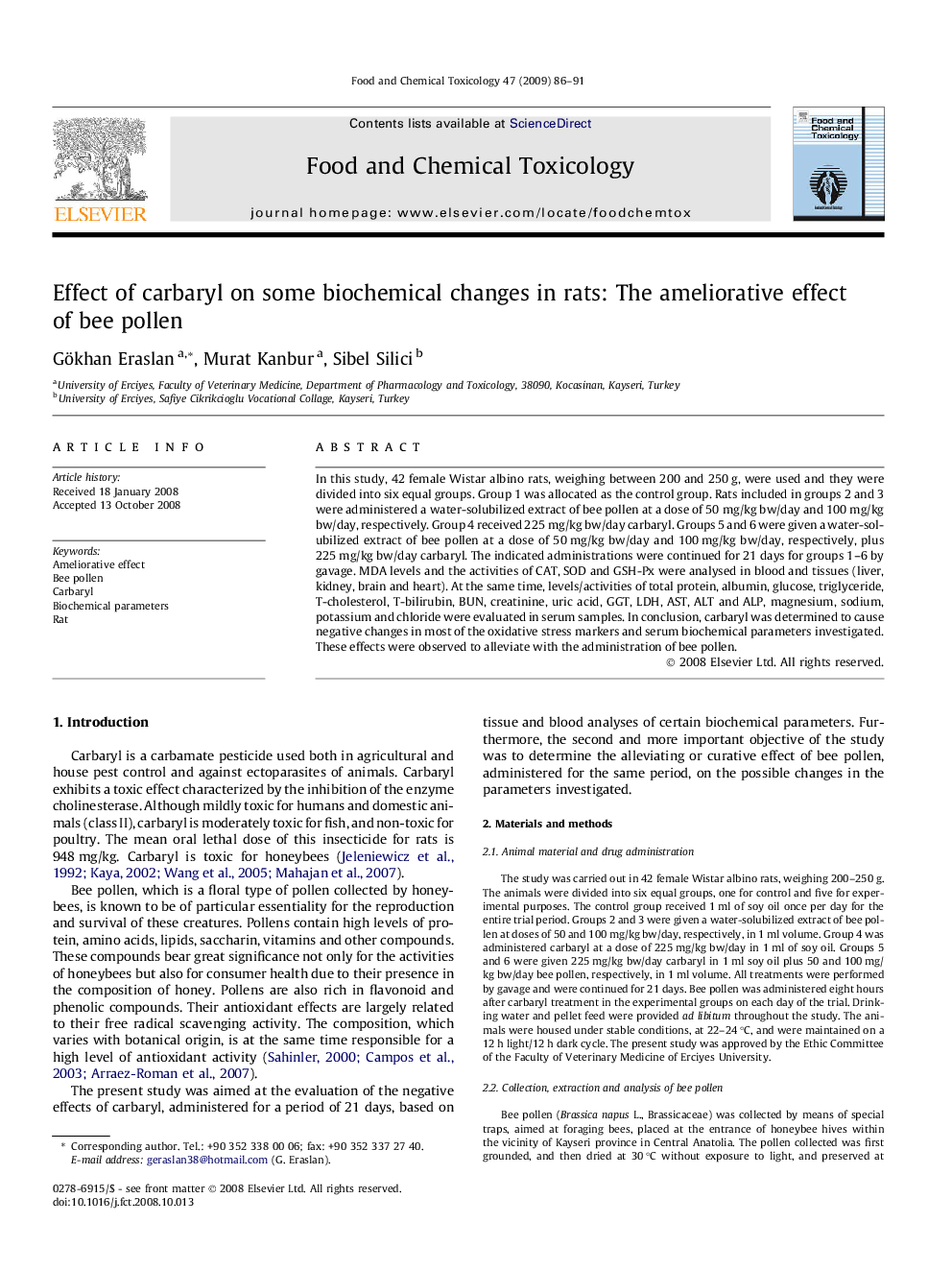| Article ID | Journal | Published Year | Pages | File Type |
|---|---|---|---|---|
| 2586821 | Food and Chemical Toxicology | 2009 | 6 Pages |
In this study, 42 female Wistar albino rats, weighing between 200 and 250 g, were used and they were divided into six equal groups. Group 1 was allocated as the control group. Rats included in groups 2 and 3 were administered a water-solubilized extract of bee pollen at a dose of 50 mg/kg bw/day and 100 mg/kg bw/day, respectively. Group 4 received 225 mg/kg bw/day carbaryl. Groups 5 and 6 were given a water-solubilized extract of bee pollen at a dose of 50 mg/kg bw/day and 100 mg/kg bw/day, respectively, plus 225 mg/kg bw/day carbaryl. The indicated administrations were continued for 21 days for groups 1–6 by gavage. MDA levels and the activities of CAT, SOD and GSH-Px were analysed in blood and tissues (liver, kidney, brain and heart). At the same time, levels/activities of total protein, albumin, glucose, triglyceride, T-cholesterol, T-bilirubin, BUN, creatinine, uric acid, GGT, LDH, AST, ALT and ALP, magnesium, sodium, potassium and chloride were evaluated in serum samples. In conclusion, carbaryl was determined to cause negative changes in most of the oxidative stress markers and serum biochemical parameters investigated. These effects were observed to alleviate with the administration of bee pollen.
